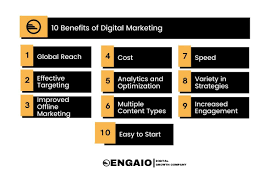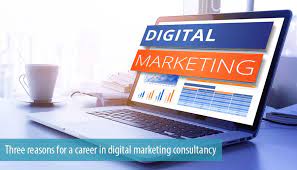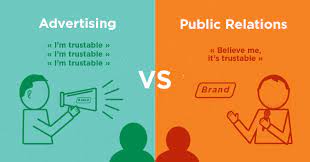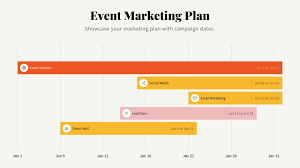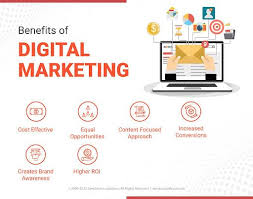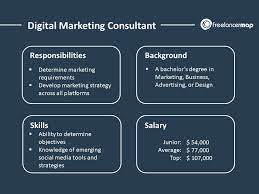Digital PR Consultant: Harnessing the Power of Online Communication
In today’s digital age, effective communication has become more critical than ever for businesses seeking to thrive in the online realm. With the rise of social media, influencers, and digital platforms, companies must adapt their PR strategies to effectively engage with their target audiences. This is where a digital PR consultant can play a vital role in helping businesses navigate the complex world of online communication.
A digital PR consultant is an expert in leveraging digital platforms and technologies to build brand awareness, manage reputation, and generate positive exposure for businesses. They possess a deep understanding of how to effectively communicate messages in the digital landscape and have the knowledge and skills to implement strategies that align with a company’s goals.
One of the key advantages of working with a digital PR consultant is their ability to harness the power of social media. These consultants understand how to navigate various social media channels, identify target audiences, and create compelling content that resonates with users. By utilising social media platforms such as Facebook, Instagram, Twitter, LinkedIn, and YouTube, they can help businesses connect with their audiences on a personal level and build strong relationships.
Additionally, a digital PR consultant can assist businesses in managing their online reputation. In today’s interconnected world, one negative review or viral tweet can significantly impact a company’s image. A skilled consultant knows how to monitor online conversations about a brand and respond strategically to maintain a positive reputation. They can also proactively engage with customers through online communities and forums to address concerns or provide valuable information.
Furthermore, a digital PR consultant understands the importance of influencer marketing. Influencers have become powerful voices in shaping consumer opinions and purchasing decisions. These consultants have expertise in identifying relevant influencers within specific industries or niches and devising partnerships that align with a brand’s values. By collaborating with influencers who have an engaged following, businesses can increase their reach and credibility among their target market.
Another area where a digital PR consultant excels is in content creation and distribution. They have a keen eye for creating engaging and shareable content that resonates with online audiences. By crafting compelling stories, videos, infographics, and blog posts, they can help businesses capture attention and drive traffic to their websites or social media pages. Additionally, they understand how to optimise content for search engines, increasing visibility and organic reach.
In conclusion, the role of a digital PR consultant is becoming increasingly crucial in today’s digital landscape. They possess the skills and expertise to navigate the ever-changing world of online communication effectively. From social media management to reputation monitoring, influencer collaborations to content creation, these consultants play an integral role in helping businesses build brand awareness, engage with audiences, and achieve their communication goals.
If you’re looking to harness the power of digital PR and take your brand’s online presence to new heights, consider partnering with a skilled digital PR consultant. With their knowledge and strategic approach to communication in the digital realm, they can help your business thrive in today’s competitive online landscape.
7 Benefits of Hiring a Digital PR Consultant in the UK
- Increased reach and visibility
- Improved online reputation
- Enhanced SEO performance
- Strategic partnerships
- Targeted campaigns
- Cost-effective solutions
- Data-driven insights
6 Cons of Hiring a Digital PR Consultant: What to Consider Before Making the Investment
- Digital PR consultants can be expensive to hire.
- It can be difficult to measure the effectiveness of a digital PR consultant’s efforts.
- They may not have in-depth knowledge of all aspects of digital marketing and public relations.
- A lack of experience or expertise could lead to ineffective campaigns that don’t yield results or ROI.
- Digital PR consultants may not have sufficient resources to handle large campaigns across multiple channels, platforms and devices effectively and efficiently.
- There is no guarantee that the consultant will deliver what they promise, leaving you at risk for wasted time and money if their strategies fail to produce the desired outcomes.
Increased reach and visibility
Increased reach and visibility: A digital PR consultant can help you expand your brand’s reach and increase its visibility on various digital channels, including social media, blogs, websites, and more. In today’s highly competitive online landscape, it’s crucial for businesses to have a strong presence across digital platforms. This is where a digital PR consultant can be invaluable.
With their expertise in digital communication strategies, a consultant can develop and implement targeted campaigns that effectively engage with your target audience. They understand the nuances of different digital channels and know how to craft compelling content that resonates with users.
Through social media management, a digital PR consultant can help you build an active and engaged following on platforms such as Facebook, Instagram, Twitter, LinkedIn, and YouTube. They will create tailored content that aligns with your brand’s values and objectives while capturing the attention of your target audience. By consistently delivering valuable and engaging content, they can help you establish a strong online presence and foster meaningful connections with your followers.
Additionally, a digital PR consultant can identify relevant blogs or websites within your industry or niche where you can contribute guest posts or secure media coverage. By strategically placing your brand in front of relevant audiences through these platforms, they can significantly boost your visibility and credibility.
Furthermore, they understand the importance of search engine optimization (SEO) in increasing organic reach. A skilled consultant will optimize your website’s content to improve its ranking in search engine results pages (SERPs). This means that when potential customers search for keywords related to your business or industry, they are more likely to find you among the top results.
By working with a digital PR consultant to enhance your reach and visibility online, you position yourself ahead of competitors who may not be leveraging these strategies effectively. With their knowledge of the ever-evolving digital landscape and their ability to adapt to emerging trends, they can ensure that your brand remains visible to the right audience at the right time.
In conclusion, partnering with a digital PR consultant can give your brand a significant advantage in terms of increased reach and visibility on digital channels. Their expertise in crafting engaging content, managing social media platforms, securing media coverage, and optimizing your online presence can help you connect with your target audience effectively. By harnessing the power of digital communication, you can expand your brand’s visibility and ultimately drive growth and success in the online realm.
Improved online reputation
Improved Online Reputation: How Digital PR Consultants Can Safeguard Your Brand
In the digital age, maintaining a positive online reputation is crucial for businesses of all sizes. With the vast amount of information available online and the power of social media, a single negative comment or review can severely impact your brand’s image. This is where digital PR consultants come in, offering their expertise in managing and improving your online reputation.
Digital PR consultants understand the importance of monitoring conversations about your brand across various online platforms. They use advanced tools and techniques to track mentions, reviews, and comments related to your business. By keeping a close eye on these conversations, they can identify any negative sentiment or feedback that may harm your reputation.
One of the key benefits of working with a digital PR consultant is their ability to respond promptly and strategically to any negative comments or feedback. They have experience in handling online crises effectively, defusing tense situations, and addressing concerns in a professional manner. By responding promptly and transparently, they can mitigate potential damage to your brand’s reputation.
Furthermore, digital PR consultants are skilled at crafting well-thought-out responses that address customer concerns while also showcasing your commitment to providing excellent products or services. These consultants understand the importance of maintaining a consistent tone and messaging across all communication channels.
In addition to reactive measures, digital PR consultants also take proactive steps to build and improve your online reputation. They work closely with you to develop strategies that highlight positive aspects of your brand and engage with customers in meaningful ways. This may involve creating engaging content that showcases your expertise or collaborating with influencers who align with your brand values.
By implementing these proactive strategies, digital PR consultants help you build a positive online presence that resonates with your target audience. They ensure that potential customers encounter valuable information about your brand when they search for it online.
In conclusion, working with a digital PR consultant offers numerous benefits when it comes to managing and improving your online reputation. From monitoring conversations and responding to negative feedback to proactively building a positive online presence, these consultants play a vital role in safeguarding your brand’s image.
If you’re concerned about your online reputation or want to take proactive steps to enhance it, consider partnering with a digital PR consultant. With their expertise and strategic approach, they can help you navigate the digital landscape and ensure that your brand’s reputation remains strong and positive.
Enhanced SEO Performance: The Power of a Digital PR Consultant
In the highly competitive online world, having a strong online presence is crucial for businesses to succeed. One of the key advantages of working with a digital PR consultant is their expertise in Search Engine Optimization (SEO) techniques. These consultants possess the knowledge and skills to improve your website’s ranking on search engine results pages (SERPs), ultimately driving more organic traffic to your site.
Search engines like Google constantly update their algorithms, making it challenging for businesses to keep up with the ever-changing SEO landscape. Digital PR consultants stay up-to-date with these algorithm changes and understand how to optimize your website and content accordingly. They have a deep understanding of keyword research, on-page optimization, link building, and other SEO strategies that can significantly enhance your website’s visibility.
By collaborating with a digital PR consultant, you gain access to their expertise in crafting SEO-friendly content. They know how to strategically incorporate relevant keywords into your website’s copy, meta tags, headings, and alt tags, ensuring that search engines recognize the relevance and value of your content. This leads to improved rankings and increased organic traffic.
Moreover, digital PR consultants can help you build high-quality backlinks from authoritative websites within your industry or niche. Backlinks are an essential aspect of SEO as they indicate to search engines that your website is trustworthy and reputable. Consultants have established relationships with influencers, bloggers, journalists, and other relevant industry figures who can provide valuable backlinks to your site through guest blogging or collaborations.
Another way digital PR consultants enhance SEO performance is through online reputation management. They monitor online conversations about your brand and actively work towards generating positive mentions across various platforms. This not only improves your brand’s reputation but also contributes to increased visibility on SERPs.
Furthermore, digital PR consultants understand the importance of user experience (UX) in SEO rankings. They analyze website metrics such as page load speed, mobile responsiveness, and user engagement to identify areas for improvement. By optimizing your website’s UX, they ensure that visitors have a positive experience, which can lead to higher search rankings and increased organic traffic.
In conclusion, the expertise of a digital PR consultant in SEO techniques can significantly enhance your website’s performance on search engine results pages. From keyword optimization to link building, content creation to online reputation management, these consultants have the knowledge and skills to improve your website’s visibility and drive more organic traffic. By collaborating with a digital PR consultant, you can stay ahead of the competition and maximize your online presence in today’s highly competitive digital landscape.
Strategic partnerships
Strategic Partnerships: Unlocking Growth Opportunities with a Digital PR Consultant
In the fast-paced world of digital communication, businesses and organisations are constantly seeking innovative ways to expand their reach and tap into new markets. One valuable pro of working with a digital PR consultant is their ability to identify and establish strategic partnerships that can propel your business towards growth and success.
A digital PR consultant possesses a keen understanding of the industry landscape and has extensive networks within various sectors. They can leverage these connections to identify potential partners who share similar goals and objectives as your business or organisation. By forging strategic alliances, you can tap into new audiences, gain access to additional resources, and create mutually beneficial collaborations.
One key advantage of strategic partnerships facilitated by a digital PR consultant is the opportunity for increased brand exposure. By aligning your business with another reputable company or organisation, you can leverage their existing customer base and tap into new markets. This exposure can lead to enhanced brand visibility, increased credibility, and ultimately drive growth for your business.
Moreover, strategic partnerships can provide access to valuable resources that may not have been readily available otherwise. Through collaborations with complementary businesses or organisations, you can pool together expertise, knowledge, and resources to tackle challenges or pursue opportunities that would have been difficult to achieve alone. This synergy allows for greater efficiency and effectiveness in achieving shared goals.
Additionally, strategic partnerships foster innovation by bringing together different perspectives and skill sets. Collaborating with like-minded entities encourages the exchange of ideas, promotes creativity, and opens up possibilities for joint projects or initiatives. These partnerships often result in the development of innovative products or services that meet evolving market demands.
Furthermore, forming strategic alliances can lead to cost savings through shared expenses and economies of scale. By collaborating on marketing campaigns or events with partner organisations, you can reduce individual costs while amplifying the impact of your efforts. This cost-effectiveness enables businesses to allocate resources more efficiently and maximise returns on investment.
In conclusion, one significant pro of working with a digital PR consultant is their ability to identify and facilitate strategic partnerships. These collaborations have the potential to unlock new growth opportunities for your business or organisation. By aligning with like-minded entities, you can enhance brand exposure, access valuable resources, foster innovation, and achieve cost savings. If you’re looking to expand your reach and tap into new markets, consider partnering with a digital PR consultant to unlock the power of strategic alliances.
Targeted campaigns
Targeted Campaigns: Unlocking Maximum Impact with a Digital PR Consultant
In the vast digital landscape, reaching the right audience is key to achieving successful communication outcomes. This is where the expertise of a digital PR consultant truly shines. With their ability to create targeted campaigns tailored specifically towards your desired audience, they ensure maximum impact from every campaign launched.
A digital PR consultant understands the importance of identifying and understanding your target audience. They delve deep into market research, analysing demographics, behaviours, and interests to develop a comprehensive understanding of who your ideal customers are. Armed with this knowledge, they can craft campaigns that resonate with your audience on a personal level.
By tailoring campaigns to specific target groups, a digital PR consultant ensures that your message reaches the right people at the right time. They utilise various digital tools and platforms to precisely target individuals who are most likely to engage with your brand or respond positively to your offerings. This laser-focused approach minimises wasted resources and maximises the return on investment for each campaign.
Furthermore, a digital PR consultant knows how to speak the language of your target audience. They understand their preferences, pain points, and motivations. With this insight, they can create compelling content that truly resonates with your intended recipients. Whether it’s through captivating visuals, engaging storytelling, or interactive experiences, targeted campaigns crafted by these consultants capture attention and drive meaningful engagement.
Another advantage of working with a digital PR consultant is their ability to adapt campaigns in real-time based on data-driven insights. By closely monitoring campaign performance metrics such as click-through rates, conversions, and social media engagement, they can quickly identify what works and what doesn’t. This agile approach allows them to make necessary adjustments on-the-go, ensuring that each campaign continually delivers optimal results.
Moreover, targeted campaigns developed by digital PR consultants help build brand loyalty among specific customer segments. By creating personalised experiences for different audiences based on their unique needs and preferences, these campaigns foster a sense of connection and relevance. This, in turn, strengthens customer loyalty and encourages repeat engagement, ultimately driving brand advocacy.
In conclusion, the ability to create targeted campaigns is a significant advantage of working with a digital PR consultant. Their expertise in understanding your target audience, crafting tailored messages, and leveraging data-driven insights ensures that each campaign launched has maximum impact. By reaching the right people with the right message at the right time, these consultants help businesses achieve their communication goals efficiently and effectively.
If you’re looking to unlock the power of targeted campaigns and elevate your brand’s reach and engagement, consider partnering with a skilled digital PR consultant. With their strategic approach and deep understanding of your audience, they can help you make a lasting impact in today’s competitive digital landscape.
Cost-effective solutions
Cost-effective Solutions: The Advantages of a Digital PR Consultant
In the ever-evolving world of marketing and communication, businesses are constantly seeking cost-effective solutions to reach their target audience. This is where a digital PR consultant can be a game-changer. Compared to traditional marketing methods, digital PR offers businesses a more affordable and efficient way to get their message out there.
One of the key advantages of working with a digital PR consultant is the cost-effectiveness of their strategies. Traditional marketing methods such as print advertisements, billboards, and TV commercials often require substantial financial investments. On the other hand, digital PR leverages online platforms and technologies that are generally more budget-friendly.
Digital PR consultants tap into various online channels such as social media, websites, blogs, and online publications to create engaging content and generate exposure for businesses. These platforms offer flexible advertising options that can be tailored to fit any budget. From running targeted social media campaigns to implementing search engine optimization (SEO) techniques, digital PR consultants know how to maximize results while keeping costs in check.
Moreover, digital PR allows for better measurement and tracking of results compared to traditional marketing methods. With advanced analytics tools available today, businesses can easily monitor the performance of their digital PR campaigns in real-time. This means that adjustments can be made quickly if necessary, ensuring that resources are allocated effectively to achieve optimal outcomes.
Another cost-saving aspect of working with a digital PR consultant is the ability to reach a highly targeted audience. Through data analysis and market research, these consultants identify specific demographics or customer segments that are most likely interested in a business’s products or services. By focusing efforts on reaching these precise audiences through online channels, businesses can avoid wasting resources on reaching uninterested or irrelevant individuals.
Furthermore, digital PR offers long-term benefits at minimal additional costs. Once an online presence is established through effective strategies such as content creation and social media engagement, it continues to generate results over time. This means that businesses can enjoy ongoing exposure and engagement without incurring significant additional expenses.
In conclusion, a digital PR consultant provides cost-effective solutions for businesses looking to communicate their message efficiently. Compared to traditional marketing methods, digital PR leverages online platforms that offer more budget-friendly advertising options. The ability to track and measure results in real-time allows for better resource allocation and optimization. Additionally, the capacity to reach highly targeted audiences minimizes wastage of resources. Lastly, digital PR offers long-term benefits at minimal additional costs, ensuring ongoing exposure and engagement.
If you’re a business looking to get your message out there without breaking the bank balance too much, consider partnering with a digital PR consultant. With their expertise in cost-effective strategies and their ability to navigate the digital landscape, they can help your business achieve its communication goals while maximizing your return on investment.
Data-driven insights
Data-driven Insights: The Power of Digital PR Consultants
In the ever-evolving world of digital communication, businesses need to stay ahead of the curve to effectively engage with their target audiences. This is where the expertise of a digital PR consultant truly shines. One key advantage they bring to the table is their ability to leverage data-driven insights, which can make a significant difference in optimizing campaigns and creating content strategies that deliver maximum results.
Digital PR consultants are skilled at analyzing data from various sources, such as web analytics, social media metrics, and user behavior patterns. By delving deep into these datasets, they gain valuable insights into audience preferences, trends, and engagement patterns. Armed with this information, consultants can make informed decisions when it comes to crafting campaigns and content strategies that resonate with the target audience.
With data as their guide, digital PR consultants can identify which platforms and channels are most effective for reaching a specific audience. They can determine which types of content generate higher engagement levels or conversions and adjust strategies accordingly. This data-driven approach ensures that resources are allocated optimally, allowing businesses to make the most of their marketing budgets.
Moreover, by closely monitoring campaign performance metrics in real-time, digital PR consultants can quickly identify what is working well and what needs improvement. They can measure key performance indicators such as click-through rates, conversion rates, or social media reach to assess the success of different tactics. Armed with this knowledge, they can refine strategies on-the-go and adapt to changing market dynamics.
Data-driven insights also enable digital PR consultants to identify emerging trends or shifts in consumer behavior that may impact a business’s communication strategy. By staying on top of industry trends and monitoring competitor activities through data analysis, they can proactively adjust tactics and seize new opportunities before others do.
In addition to optimizing campaigns and content strategies, data-driven insights also play a crucial role in demonstrating the value generated by digital PR efforts. Consultants can provide clients with detailed reports that showcase the impact of their campaigns, backed by tangible data and metrics. This not only helps clients understand the return on investment but also provides a basis for future decision-making and strategy refinement.
In conclusion, the ability of digital PR consultants to leverage data-driven insights is a powerful asset in today’s digital landscape. By analyzing data from various sources, they can make informed decisions that optimize campaigns and content strategies for maximum engagement and conversions. This data-driven approach ensures that businesses stay relevant, adapt to changing market dynamics, and achieve their communication goals effectively.
If you’re looking to unlock the full potential of your digital PR efforts, partnering with a skilled consultant who understands the power of data-driven insights is essential. Their expertise can help your business make strategic decisions, refine tactics in real-time, and deliver measurable results that drive success in the ever-evolving digital world.
Digital PR consultants can be expensive to hire.
Digital PR consultants can undoubtedly provide immense value to businesses in the digital realm. However, one potential drawback is the cost associated with hiring these professionals. It’s important for businesses to consider their budget and resources before engaging a digital PR consultant.
The expertise and experience that digital PR consultants bring to the table often come at a premium price. Their knowledge of the ever-evolving digital landscape, understanding of various online platforms, and ability to develop effective communication strategies can be costly. Additionally, their skills in content creation, social media management, influencer collaborations, and reputation management require ongoing investment.
The cost of hiring a digital PR consultant can vary depending on factors such as their level of expertise, reputation, and the scope of services required. Some consultants may charge an hourly rate or project-based fees, while others may offer retainer packages. It’s essential for businesses to thoroughly research and evaluate different consultants to find one that aligns with their budgetary constraints.
While the expense may be a deterrent for some businesses, it’s crucial to consider the potential return on investment (ROI) that a skilled digital PR consultant can deliver. Effective online communication strategies can enhance brand visibility, attract new customers, build credibility, and ultimately drive revenue growth. Therefore, it’s essential to weigh the long-term benefits against the upfront costs when considering hiring a digital PR consultant.
Businesses should also explore alternative options if they have budget limitations. They could consider working with freelancers or agencies that offer more flexible pricing structures or project-based arrangements. Another option is investing in training internal teams to handle certain aspects of digital PR in-house while seeking consultation on specific areas where expertise is lacking.
Ultimately, businesses need to carefully assess their financial capabilities and goals before deciding whether or not to hire a digital PR consultant. While cost is an important factor to consider, it should be balanced against the potential value they can bring in terms of brand growth and online success.
In conclusion, while it is true that digital PR consultants can be expensive to hire, their expertise and strategic guidance can yield significant benefits for businesses in the digital realm. By carefully evaluating the costs and potential ROI, businesses can make informed decisions about whether engaging a digital PR consultant aligns with their budget and long-term objectives.
It can be difficult to measure the effectiveness of a digital PR consultant’s efforts.
One of the challenges that businesses may encounter when working with a digital PR consultant is the difficulty in measuring the effectiveness of their efforts. Unlike traditional PR methods, where metrics such as media coverage or press mentions can be easily quantified, evaluating the impact of digital PR strategies can be more complex.
In the digital realm, there are countless variables to consider when measuring success. While some metrics, such as website traffic or social media followers, can provide a general indication of engagement, they do not necessarily paint a complete picture of the consultant’s impact on a business’s overall goals.
One reason for this challenge is the dynamic nature of online platforms. Algorithms constantly change, making it difficult to attribute specific outcomes solely to the efforts of a digital PR consultant. Additionally, online audiences have diverse behaviours and preferences, making it challenging to accurately measure how an individual’s actions were influenced by specific digital PR initiatives.
Another factor contributing to measurement difficulties is the long-term nature of digital PR strategies. Building brand awareness and reputation in the online space often requires consistent effort over an extended period. It may take time before tangible results become apparent, making it challenging to attribute specific outcomes solely to the consultant’s work within a given timeframe.
However, while measuring effectiveness can be challenging, it is not impossible. Collaborating closely with a digital PR consultant and setting clear objectives from the beginning can help align expectations and establish measurable goals. By defining key performance indicators (KPIs) that align with business objectives – such as increased website conversions or improved search engine rankings – it becomes easier to evaluate progress and measure success over time.
Additionally, employing various analytical tools and technologies can provide valuable insights into audience engagement and behaviour. Web analytics platforms like Google Analytics or social media analytics tools offer data on user interactions, referral sources, conversion rates, and more. These metrics can help gauge the impact of specific campaigns or initiatives implemented by a digital PR consultant.
Ultimately, while measuring effectiveness in digital PR can be challenging, it is crucial to establish clear goals and KPIs from the outset. Regular monitoring and analysis of relevant metrics can provide valuable insights into the consultant’s impact on a business’s online presence. By maintaining open communication and an ongoing evaluation process, businesses can gain a better understanding of the effectiveness of their digital PR consultant’s efforts and make necessary adjustments to achieve their desired outcomes.
They may not have in-depth knowledge of all aspects of digital marketing and public relations.
While digital PR consultants can offer valuable expertise in navigating the online communication landscape, it is important to acknowledge that they may not possess in-depth knowledge of all aspects of digital marketing and public relations. This limitation can be seen as a potential drawback when considering their services.
Digital marketing and public relations encompass a wide range of strategies, techniques, and platforms. From search engine optimization (SEO) and pay-per-click (PPC) advertising to content marketing and media relations, there are various components that contribute to a comprehensive digital marketing and PR strategy.
Due to the ever-evolving nature of the digital landscape, it can be challenging for a single consultant to stay updated on all the latest trends, tools, and best practices across every aspect of digital marketing and PR. While they may excel in certain areas such as social media management or influencer collaborations, they might not possess the same level of expertise in other areas.
This potential limitation highlights the importance of thorough research and due diligence when selecting a digital PR consultant. It is crucial to assess their specific skills, experience, and knowledge base to ensure that they align with your business’s unique needs and objectives.
To mitigate this con effectively, businesses can consider collaborating with a team of experts or agencies that specialize in different aspects of digital marketing and PR. By leveraging the collective knowledge of specialists in SEO, content creation, media relations, and more, businesses can benefit from a well-rounded approach that covers all essential aspects of their online communication strategy.
In conclusion, while digital PR consultants bring valuable expertise to the table when it comes to online communication strategies, it is important to recognize that they may not possess comprehensive knowledge across all aspects of digital marketing and public relations. Businesses should carefully evaluate their specific requirements and consider supplementing their efforts with specialized professionals or agencies who excel in specific areas of digital marketing and PR.
A lack of experience or expertise could lead to ineffective campaigns that don’t yield results or ROI.
A Potential Pitfall of Digital PR Consultants: Lack of Experience and Expertise
In the rapidly evolving world of digital PR, businesses often turn to consultants to help them navigate the complexities of online communication. While many digital PR consultants possess a wealth of experience and expertise, it is important to acknowledge that there can be a downside as well. One potential con is the risk of working with a consultant who lacks the necessary experience or expertise, which could result in ineffective campaigns that fail to yield desired results or return on investment (ROI).
Digital PR requires a deep understanding of the ever-changing digital landscape, including social media platforms, online communities, influencer marketing, content creation, and more. Without adequate experience and expertise in these areas, a consultant may struggle to develop strategies that effectively engage target audiences or generate meaningful outcomes.
One consequence of working with an inexperienced or ill-equipped consultant is the potential for ineffective campaigns. These campaigns may lack clear objectives, fail to resonate with the intended audience, or miss opportunities for engagement. As a result, businesses may find themselves investing time and resources into initiatives that do not deliver the desired impact or drive tangible results.
Furthermore, without proper expertise in digital PR tactics and tools, a consultant may struggle to accurately measure campaign performance or gauge return on investment. This can make it difficult for businesses to assess whether their efforts are generating positive outcomes or if adjustments need to be made.
To mitigate this risk when considering a digital PR consultant, it is essential for businesses to thoroughly evaluate their credentials and track record. Look for consultants who have successfully executed similar campaigns in the past and have achieved measurable results for their clients. Additionally, consider seeking recommendations from trusted sources within your industry who have worked with reputable consultants.
Collaborating with an inexperienced or ill-equipped digital PR consultant can indeed be detrimental to your business’s communication efforts. However, by conducting thorough research and due diligence when selecting a consultant, you can mitigate this risk and increase the likelihood of partnering with a professional who possesses the necessary experience and expertise to drive successful campaigns, yielding meaningful results and a positive return on investment.
Digital PR consultants have undoubtedly revolutionized the way businesses communicate and engage with their audiences in the online world. However, like any service, there are potential drawbacks that need to be considered. One such drawback is that digital PR consultants may not always have sufficient resources to handle large campaigns across multiple channels, platforms, and devices effectively and efficiently.
In today’s digital landscape, businesses need to maintain a strong presence across various online platforms, such as social media, websites, blogs, and more. They must also adapt their strategies to cater to different devices like smartphones, tablets, and desktops. Managing these complex campaigns requires a significant investment of time, expertise, and resources.
While digital PR consultants possess valuable skills in navigating the online realm and creating engaging content, they may face limitations when it comes to handling large-scale campaigns. They might not have access to the necessary manpower or tools required to execute comprehensive strategies across multiple channels simultaneously.
This limitation can lead to challenges in maintaining consistent messaging and monitoring engagement across all platforms effectively. It may also result in delays in responding to customer queries or managing reputation issues promptly. Without adequate resources at their disposal, digital PR consultants may struggle to achieve optimal results for businesses with extensive campaign requirements.
Furthermore, the effectiveness of campaigns can be compromised if consultants are spread too thin across various projects. Their attention and focus may become divided among numerous clients or campaigns simultaneously. This could potentially impact the quality of work delivered or hinder their ability to stay updated with the latest trends and developments in the ever-evolving digital landscape.
To mitigate this con of limited resources, businesses should carefully evaluate a digital PR consultant’s capacity before engaging their services. It is essential for companies with substantial campaign needs to ensure that consultants have sufficient staff members or partnerships in place to handle multiple channels effectively.
Additionally, open communication between businesses and consultants is crucial. Clearly defining expectations from the outset will help align resources accordingly and ensure that both parties have a realistic understanding of what can be achieved within the available scope.
In conclusion, while digital PR consultants offer valuable expertise in navigating the online world, it is important to acknowledge that they may face limitations in handling large-scale campaigns across multiple channels, platforms, and devices. Businesses should consider these factors when engaging a digital PR consultant and work closely with them to ensure that resources are appropriately allocated for effective and efficient campaign execution.
There is no guarantee that the consultant will deliver what they promise, leaving you at risk for wasted time and money if their strategies fail to produce the desired outcomes.
The Risk of Uncertainty: The Downside of Digital PR Consultants
In the fast-paced world of digital PR, businesses often turn to consultants for guidance in navigating the complex landscape. While digital PR consultants can offer valuable expertise and insights, it’s essential to acknowledge that there is a con associated with their services: the lack of guarantee in delivering promised outcomes.
When engaging a digital PR consultant, businesses invest their time and money with the expectation of achieving specific goals. However, despite the consultant’s best efforts and strategic planning, there is always a level of uncertainty involved. Not every strategy will yield desired results, and this inherent risk can leave businesses feeling frustrated and disappointed.
One challenge lies in the ever-changing nature of digital platforms and algorithms. What may have worked effectively in the past may not yield the same results today. The consultant’s strategies may be based on proven techniques, but external factors beyond their control can impact outcomes. This unpredictability can lead to wasted time and money if desired outcomes are not achieved.
Furthermore, every business is unique, with its own set of circumstances and target audience. While a digital PR consultant may have experience working with similar companies or industries, success cannot be guaranteed due to these individual nuances. What works for one business may not necessarily work for another, even with expert guidance.
To mitigate this risk, it is crucial for businesses to conduct thorough research before engaging a digital PR consultant. Look for consultants who have a track record of success and positive client testimonials. Request case studies or examples that demonstrate their ability to achieve desired outcomes in similar situations.
Additionally, open communication between businesses and consultants is key. Clearly define goals and expectations from the outset and maintain regular dialogue throughout the engagement. This allows both parties to align their strategies and make adjustments as needed along the way.
While there is no foolproof solution to eliminate uncertainty entirely, being aware of this con empowers businesses to make informed decisions when working with digital PR consultants. It’s important to approach the partnership with realistic expectations and a willingness to adapt if initial strategies do not produce the desired outcomes.
In conclusion, the lack of guarantee in delivering promised outcomes is a con that businesses should consider when engaging a digital PR consultant. However, by conducting thorough research, maintaining open communication, and managing expectations, businesses can mitigate this risk and increase their chances of achieving successful digital PR campaigns.



